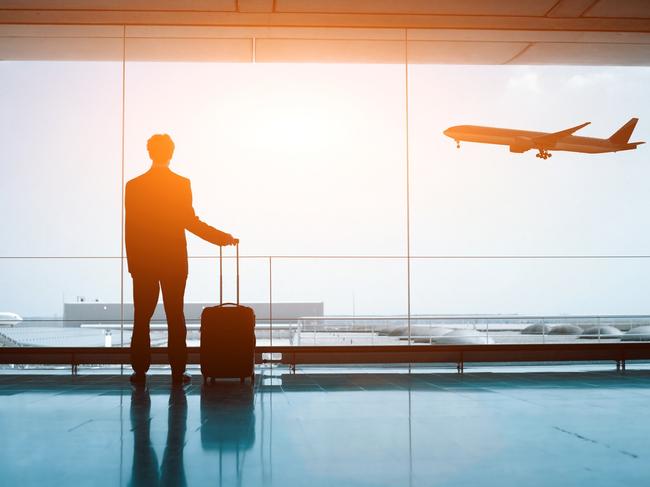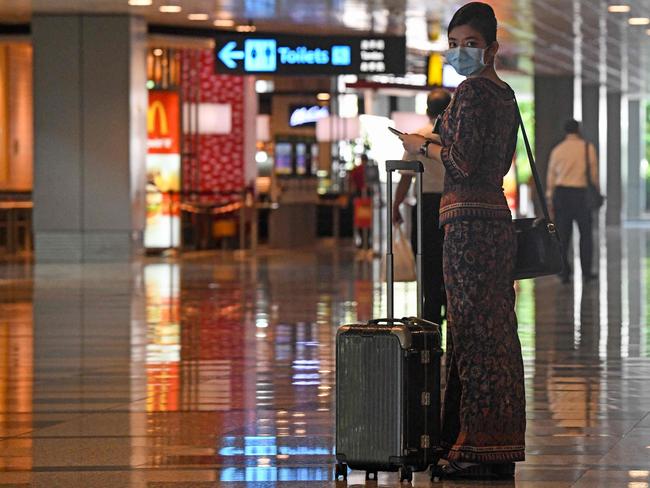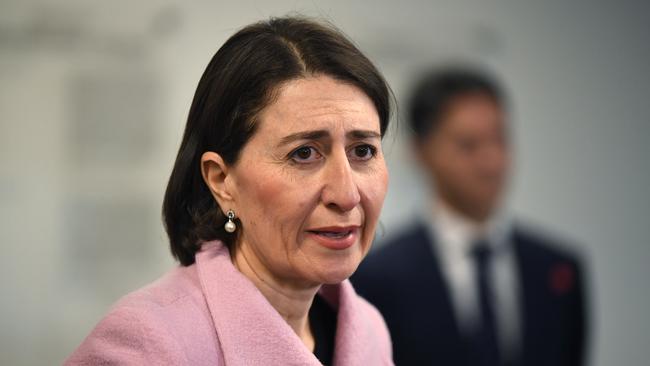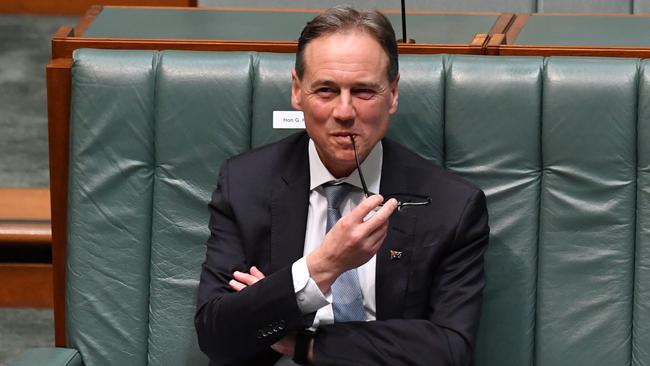Government’s secret plan to slash quarantine time for business flyers
Corporate travellers from Singapore, Japan, Hong Kong and South Korea could be first to benefit from a secret government plan to boost business tourism between Australia and Asia-Pacific hubs but NSW Premier Gladys Berejiklian isn’t so keen.
NSW Coronavirus News
Don't miss out on the headlines from NSW Coronavirus News. Followed categories will be added to My News.
A proposal to slash the quarantine period for corporate travellers from overseas from two weeks to seven days is premature and could jeopardise the health of Australians, according to NSW Premier Gladys Berejiklian.
Senior members of the Morrison government are working on the plan, with the Department of Home Affairs being asked to find ways to ease entry restrictions for business travellers from hubs in the Asia-Pacific with low rates of COVID-19.
It comes just weeks after Singapore revealed it had discussed the idea of a “green lane” with Australian officials that would allow corporate flyers to be tested just once when flying between two countries with similar testing protocols and standards.
Another option to entice workers back to Australia would be to cut the length of time business travellers need to quarantine from 14 days to just seven.

The proposal would only be offered to workers from countries with low rates of COVID-19, but News Corp understands Singapore, Japan, Hong Kong and South Korea would be first in line for the exemption.
The government will need to consult health experts on the Australian Health Protection Principal Committee (AHPPC) before easing corporate travel, which could restart within months.
But some health officials remain cautious about the proposal, warning the AHPPC will only recommend lifting quarantine times for countries that have similar testing regimens.
And Ms Berejiklian also thinks it would be too much, too soon.
“We would be a bit concerned about that at this stage,” Ms Berejiklian told Sky News commentator Sharri Markson last night.
“I know the Prime Minister through our discussions in national cabinet also appreciates how well the quarantine system has gone,” she said.

“In NSW but for perhaps one or two exceptions in the last two or three weeks every single new case has come from overseas travellers coming back home.”
Business Events Council of Australia chair Dr Vanessa Findlay said that if successful, the proposed Australia-New Zealand travel bubble should be expanded to Asian countries where Australia has strong trade ties.
Dr Findlay said there was an argument that attending conferences or working abroad was just an extension of workplaces, meaning restrictions could be eased.
“For all business events, every attendee is already registered … these systems already exist so business travellers are easy to track.”
Association of Australian Convention Bureaux chief executive Andrew Hiebl urged the government to fast-track business travel, saying Australia will miss out if restrictions aren’t eased.

Before the bushfires and the pandemic, convention centres had secured more than 350 international business events worth $1.2 billion to the economy over the next seven years.
He said Australia’s COVID-19 response was “well recognised globally”, and while it was difficult to market on safety, the low number of cases could add to Australia’s brand as an event capital.
Ms Berejiklian said Sydney has welcomed and quarantined 20,000 Australians who have returned home from overseas since the start of the pandemic.
She said the COVID-19 infections rate was high among travellers coming back into Australia via NSW.
“About three to four per cent of people we test are having the virus which is quite high which means they are coming from countries where the virus is very widespread and of course we want to keep our citizens safe,” she said.

Federal Health Minister Greg Hunt speaking on the ABC yesterday said there were “two pathways” being explored for the resumption of international travel and the government would be guided by medical advice.
“One is to use our quarantine system with international students and appropriately with people who are delivering international benefit whether that’s in business or other areas,” Mr Hunt said. “Secondly is where we have a safe relationship with another country, and New Zealand is at the top of the list, having a non-quarantine approach which will open up borders.”
He said there was “a bit more work to be done” and it was unlikely any international travel would be allowed until domestic borders reopened.
The proposal to ease quarantine restrictions for business travellers comes as it was announced the 50-person limit at cafes, restaurants and churches will be scrapped in NSW with venues instead to follow the one person per four square metres rule.
